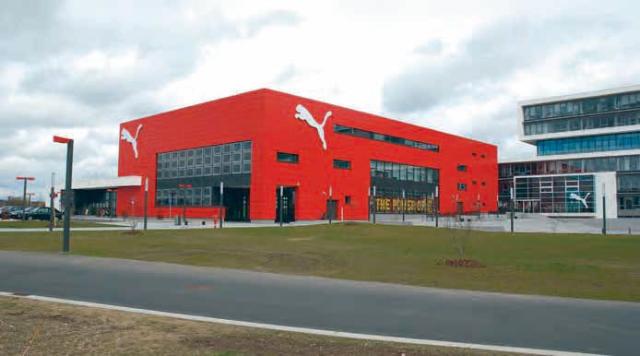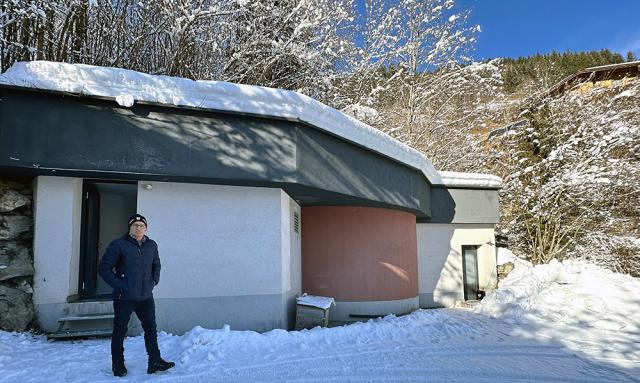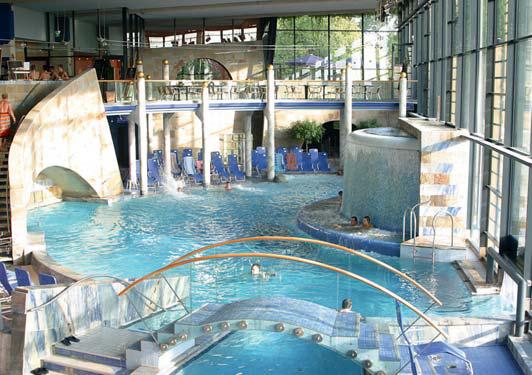CASES
We have installed more than 100,000 systems throughout Europe.
BIOCAT lime protection systems are available in a range of sizes with varying capacities – from the smallest units suitable for single-family homes to the largest systems capable of meeting the needs of industrial enterprises and housing associations.
Here, you can read a series of case descriptions demonstrating how economics and ecology can go hand in hand – how optimal lime protection can be achieved without the use of chemicals while significantly reducing operational and maintenance costs.

Allianz Arena: Champion-level limescale protection
When there are 75,000 spectators at a football match at the Allianz Arena, the drinking water installation must be able to handle large volumes of water. The extreme peak loads and pressure losses required new, effective solutions. BIOCAT KS 25D reduces both maintenance costs and environmental impact – without the use of chemicals.

Public swimming pool in Nuremberg
The operations manager of the modern swimming pool in Nuremberg was faced with a growing challenge: Limescale deposits in the hot water system were affecting energy efficiency, increasing operating costs and making it difficult to maintain a temperature high enough to prevent Legionella.
You can read the whole story here.

Newly opened holiday park had serious problems with water quality
Shortly after Center Parcs Park Allgäu with its 1,000 holiday homes and large water park opened, serious water quality issues arose. Pipes and installations had quickly become calcified, and if guests were to continue splashing in the pool and enjoying the wellness oases, something drastic had to be done about the limescale protection. The solution was to connect four large BIOCAT KS 25D systems in series.

Effective lime protection in the Rintheimer Feld neighbourhood in Karlsruhe
Driving through the Rintheimer Feld neighbourhood, it's immediately apparent: the many apartment blocks have been beautifully renovated. But it's not just the facades that look neat and new. The interior of the buildings and installations have also been improved. This also applies to the local water supply, where the green BIOCAT limescale protection systems now ensure lime-free pipes and hygienic, tasty drinking water.
You can read the full story here.

PUMA's green ambitions demanded chemical-free lime protection
When planning a new headquarters, PUMA's ambition was to be the first climate-neutral headquarters in the industry. This also included the drinking water technology, which had to be chemical-free. Resource consumption and technology choices had to align with PUMA's green vision. The key word was "sustainability" - and BIOCAT lime protection systems were the natural choice.
You can read the full story here.

A five-star spa is deeply dependent on water quality
For the hotels in Bad Wörishofen, the town's healing spa water is as valuable as pure gold. Unfortunately, the town's water is very hard, and the high lime content is a major challenge for the many spa hotels - including the five-star Steigenberger Hotel "Der Sonnenhof". Fortunately, a solution has now been found that ensures drinking water quality - even without the use of chemicals.
You can read the full story here

A mountain village defied the lime with chemical-free water treatment
Winter can be harsh in the mountain village of Großarl in the Alps. Temperatures of - 20° degrees Celsius are not uncommon. But a water hardness on the wrong side of 20 °dH is still too harsh for even the hardy mountain dwellers. That's why the village water co-operative set out to find an effective lime protection solution. The requirement was that the solution - in addition to being effective - had to be chemical-free.
You can read the full story here.

Cologne spa was plagued by hard water in the thermal well
What is a spa and wellness center with excessively hard water? The Claudius Therme in Cologne was "in trouble" because the water from their thermal well had a water hardness level of more than 30 °dH. There was an urgent need for an effective limescale protection solution, preferably a reliable solution with uncomplicated control technology. This is where WATERCryst came in.
You can read the full story here.

Mallorca hotels switch to chemical-free limescale protection
The regional government of the holiday island Mallorca is sounding the alarm: once again, water resources pose a significant problem. The water supply has deteriorated due to lack of maintenance and pollution. The purification plants are no longer capable of treating the highly saline water, leading the first hotels to decide to implement BIOCAT limescale protection systems.
You can read the full story here
Energy savings must not be at the expense of health
Energy savings must not be at the expense of health, and the property industry should focus on effective limescale protection. Otherwise, the risk of legionella and other pathogenic bacteria multiplying in drinking water installations increases. Taking the Carl-Wery-Hof building complex in Munich as a starting point, experts here open up an important technical discussion.
You can read the full story here.

Sustainable and economic solution at St. Vinzenz Hospital
St. Vinzenz Hospital needed a new scale protection system as the ongoing repair and service costs for the existing water softening system had become too high. At the same time, there was a desire to promote sustainability, making it crucial to find technology that did not involve the use of chemicals – especially concerning drinking water hygiene and ensuring the highest possible patient safety.
You can read the full story here
